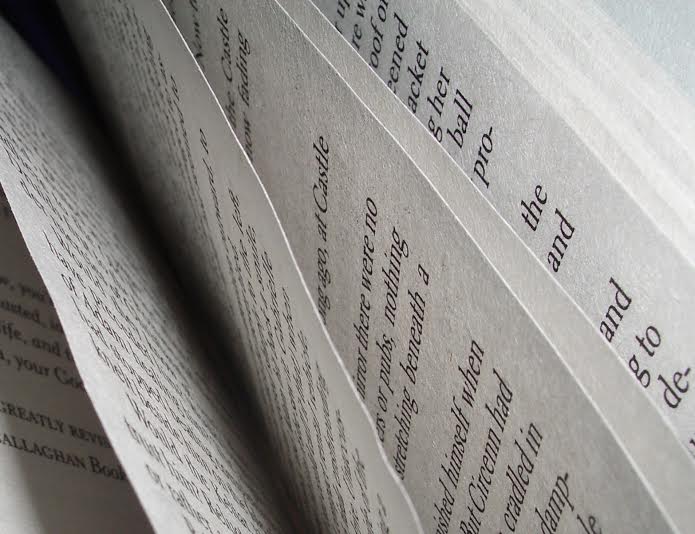Creating the Perfect Opening for a Novel
Blogger: Joseph Bentz
Creating the Perfect Opening for a Novel
If you come to Mount Hermon to learn how to be a better fiction writer, one concept you will no doubt hear repeatedly is how important the first few pages of your novel are. If done well, they can invite the reader into your book, but if handled poorly, they can slam the door shut and prevent the reader from proceeding to any good material that follows.
How can you write a compelling opening for your novel?
In a California literature course I teach at Azusa Pacific University, we study Raymond Chandler’s novel, The Big Sleep, a classic of hardboiled detective fiction that features private investigator Philip Marlowe solving mysteries in a noir-ish and unforgettable Los Angeles setting.
After the students read the book, one of the first ways we study it is simply to read out loud and analyze the first few pages. Chandler wastes no time. His opening establishes the novel’s tone and atmosphere, captures the personality of the narrator Marlowe, and propels the plot into motion. It isn’t easy to do all those things at once. If you don’t believe me, try it.
Take a look at The Big Sleep’s first two paragraphs:
It was about eleven o’clock in the morning, mid October, with the sun not shining and a look of hard wet rain in the clearness of the foothills. I was wearing my powder-blue suit, with dark blue shirt, tie and display handkerchief, black brogues, black wool socks with dark blue clocks on them. I was neat, clean, shaved and sober, and I didn’t care who knew it. I was everything the well-dressed private detective ought to be. I was calling on four million dollars.
The main hallway of the Sternwood place was two stories high. Over the entrance doors, which would have let in a troop of Indian elephants, there was a broad stained-glass panel showing a knight in dark armor rescuing a lady who was tied to a tree and didn’t have any clothes on but some very long and convenient hair. The knight had pushed the vizor of his helmet back to be sociable, and he was fiddling with the knots on the ropes that tied the lady to the tree and not getting anywhere. I stood there and thought that if I lived in the house, I would sooner or later have to climb up there and help him. he didn’t seem to be really trying.
What information do we learn from these two paragraphs? A private detective has dressed up in a nice suit in order to call on a wealthy client who lives in a mansion.
Those are the facts, but Chandler’s words tell us much more. Why describe the outfit in such detail, even down to the socks? If you pick up a hint of sarcasm in that little bit of over-description, it is confirmed in the next sentence: “I was neat, clean shaved and sober, and I didn’t care who knew it.” That declaration conveys more than the surface meaning of the words. As one of my students put it, “Someone who is usually sober doesn’t need to point out that he is sober.” The same is true for being clean and shaved. Marlowe may be revealing a few weaknesses in that sentence, but also a few strengths: he’s frank, down-to-earth, and he has a self-deprecating sense of humor. I like him already.
Almost every sentence in these two paragraphs has something to commend it. For example, take at “I was calling on four million dollars.” A lesser writer might have settled for something like, “I was calling on a wealthy client.” Chandler’s sentence is better than that in both tone and content. We now know how wealthy General Sternwood is (his four million is in late 1930s dollars), and more importantly, the tone indicates Marlowe is not over-awed by money.
His sarcasm toward ostentatious displays of wealth is extended in the second paragraph, when he describes the Sternwood mansion. He doesn’t need any direct comment about how gaudy he thinks the place is. The fact that the entrance doors “would have let in a troop of Indian elephants” tells the reader plenty about Marlowe’s attitude toward the house. His commentary on the stained-glass artwork tells us as much about the unpretentious detective as it does about the questionable artistic taste of the Sternwoods.
The opening paragraphs of The Big Sleep let us know we are starting a journey with a narrator who knows what he’s doing, both as a detective and as a storyteller. We like him from the start, and we can’t wait to see what he’ll do next. He doesn’t disappoint.
Joseph Bentz, a freelance author and an English Professor at Azusa Pacific University, is part of the faculty for the 2015 conference. Click here to read the full bio for Joseph Bentz.
Joe will join us at the conference, March 27-31, 2015, to serve as a Morning Mentoring Track Nonfiction Mentor and teach an afternoon workshop. Click here to view the workshop summary for Strategies for Writers with No Time to Write.
Does the opening to your novel need strengthening? Do you want to make your fiction more compelling? Think about taking your fiction to the next level in our Head Start Pre-Conference Mentoring Track.






This is a great analysis of why this Chandler opening works. I’ve noticed that with many genre novels (detection, murder mystery, action/adventure) the writer tries to begin with a car accident or some major piece of action. What this “grabber” does is grip the reader (maybe too hard) but it doesn’t invite the reader in. It doesn’t do what you have said here about establishing the tone for the whole novel. It doesn’t even really establish a plot point. This Chandler opening is so much better and so understated. I learned a few things just in reading this. Thank you, Joe.
I’ve been returning to these opening paragraphs since I was in college (and you know that wasn’t recently…) An extraordinary bit of foreshadowing. Marlowe, a knight for The Wasteland.